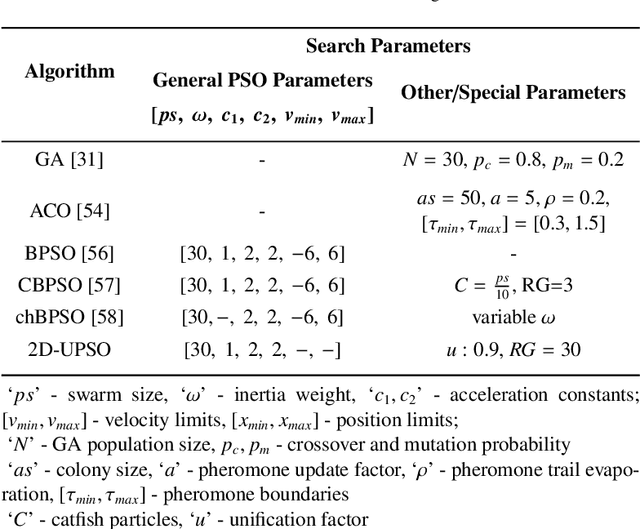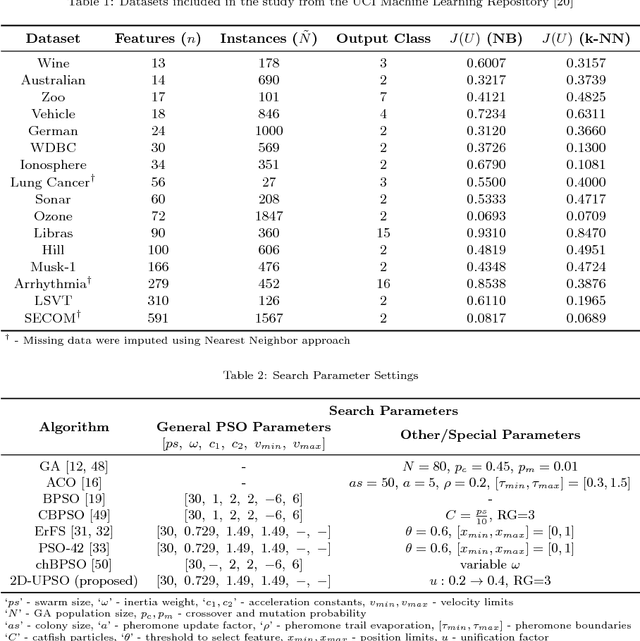Chirag Naik
Efficient Feature Selection of Power Quality Events using Two Dimensional (2D) Particle Swarms
Apr 15, 2019



Abstract:A novel two-dimensional (2D) learning framework has been proposed to address the feature selection problem in Power Quality (PQ) events. Unlike the existing feature selection approaches, the proposed 2D learning explicitly incorporates the information about the subset cardinality (i.e., the number of features) as an additional learning dimension to effectively guide the search process. The efficacy of this approach has been demonstrated considering fourteen distinct classes of PQ events which conform to the IEEE Standard 1159. The search performance of the 2D learning approach has been compared to the other six well-known feature selection wrappers by considering two induction algorithms: Naive Bayes (NB) and k-Nearest Neighbors (k-NN). Further, the robustness of the selected/reduced feature subsets has been investigated considering seven different levels of noise. The results of this investigation convincingly demonstrate that the proposed 2D learning can identify significantly better and robust feature subsets for PQ events.
A Two-Dimensional (2-D) Learning Framework for Particle Swarm based Feature Selection
Aug 03, 2018



Abstract:This paper proposes a new generalized two dimensional learning approach for particle swarm based feature selection. The core idea of the proposed approach is to include the information about the subset cardinality into the learning framework by extending the dimension of the velocity. The 2D-learning framework retains all the key features of the original PSO, despite the extra learning dimension. Most of the popular variants of PSO can easily be adapted into this 2D learning framework for feature selection problems. The efficacy of the proposed learning approach has been evaluated considering several benchmark data and two induction algorithms: Naive-Bayes and k-Nearest Neighbor. The results of the comparative investigation including the time-complexity analysis with GA, ACO and five other PSO variants illustrate that the proposed 2D learning approach gives feature subset with relatively smaller cardinality and better classification performance with shorter run times.
 Add to Chrome
Add to Chrome Add to Firefox
Add to Firefox Add to Edge
Add to Edge